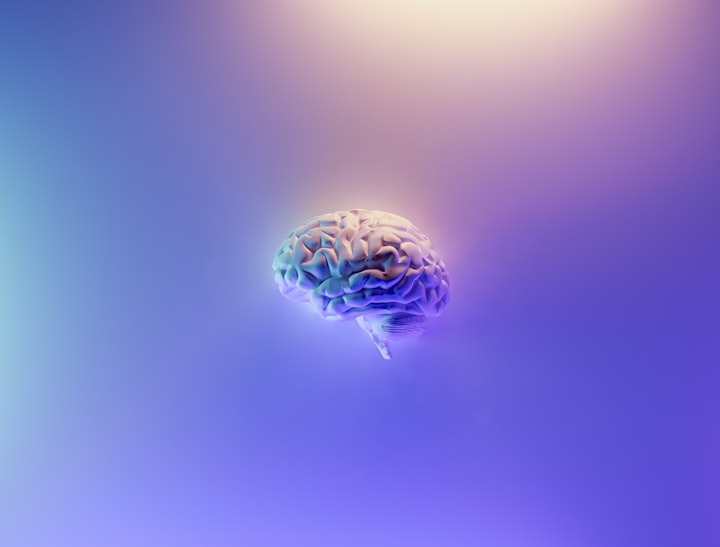The Combination of IQ and EQ
Do you have IQ - but are missing out on EQ? Read on to find out!

Understanding the differences between IQ (Intelligence Quotient) and EQ (Emotional Quotient) is essential for comprehending the intricacies of human intelligence and emotional intelligence. While both metrics play significant roles in shaping individuals' interactions with the world, they operate on distinct dimensions, each with its unique implications. In this exploration, we delve deeper into the nuances of IQ and EQ, elucidating their definitions, comparative analysis, and the importance of achieving a harmonious balance between the two.
IQ, often regarded as a cornerstone of traditional intelligence assessment, encompasses a range of cognitive abilities evaluated through standardized tests. These abilities include but are not limited to processing information, problem-solving, logical reasoning, and pattern recognition. The concept of IQ originated from the work of psychologists like Alfred Binet and Theodore Simon, who developed the first intelligence test to identify students in need of academic support. Over time, IQ tests evolved, becoming integral tools in educational, clinical, and organizational settings for assessing intellectual aptitude and predicting academic and professional success.
On the other hand, EQ, or Emotional Quotient, represents a relatively newer concept that gained prominence in the latter half of the 20th century, propelled by the pioneering work of psychologists like Peter Salovey and John Mayer, and popularized by Daniel Goleman. Unlike IQ, which focuses on cognitive abilities, EQ pertains to emotional intelligence—the capacity to perceive, understand, manage, and express emotions effectively. Emotional intelligence encompasses self-awareness, self-regulation, empathy, social skills, and interpersonal relationships, all of which play crucial roles in personal and professional domains.
While IQ and EQ are distinct constructs, they are not mutually exclusive. Individuals can possess varying degrees of both intelligence and emotional intelligence, with each dimension influencing the other in nuanced ways. Research suggests that individuals with higher IQs tend to exhibit elevated levels of EQ, demonstrating greater emotional awareness, empathy, and interpersonal skills. However, it's essential to recognize that IQ and EQ operate independently, and possessing a high IQ does not guarantee a commensurate level of EQ, and vice versa.
A comparative analysis of IQ and EQ unveils intriguing insights into their interplay and implications for human behavior and interactions. While individuals with high IQs often excel in tasks requiring cognitive prowess, they may encounter challenges in navigating complex social dynamics and emotional situations, particularly if their EQ is relatively lower. Conversely, individuals with high EQs may demonstrate superior interpersonal skills and emotional resilience but may face hurdles in tasks emphasizing analytical thinking and problem-solving typical of high-IQ scenarios.
Signs of a high IQ coupled with a lower EQ include intense emotional experiences, such as heightened sensitivity or emotional volatility, challenges in regulating emotions effectively, tendencies towards perfectionism and overthinking, difficulties in understanding and empathizing with others' perspectives, and struggles in forming and maintaining meaningful interpersonal relationships. While possessing a high IQ can confer certain advantages, such as enhanced cognitive abilities and academic achievements, a deficiency in EQ can impede individuals' overall well-being, interpersonal relationships, and success in various life domains.
Achieving a harmonious balance between IQ and EQ is paramount for fostering holistic personal development and navigating life's complexities adeptly. Cultivating emotional awareness, honing interpersonal skills, and practicing self-regulation are instrumental in bridging the gap between cognitive and emotional intelligence. Strategies for enhancing EQ include mindfulness practices, emotional regulation techniques, empathetic listening, conflict resolution skills, and fostering meaningful connections with others.
In educational settings, integrating social-emotional learning (SEL) programs alongside traditional academic curricula can promote students' holistic development by equipping them with essential life skills, such as self-awareness, self-management, social awareness, relationship skills, and responsible decision-making. Similarly, in organizational contexts, fostering a culture of emotional intelligence can lead to higher employee engagement, productivity, and job satisfaction, as well as improved team dynamics and leadership effectiveness.
In conclusion, while IQ and EQ represent distinct dimensions of human intelligence, they are intricately interconnected, each contributing to individuals' overall cognitive and emotional well-being. By acknowledging and understanding the differences between IQ and EQ, we can cultivate a more holistic approach to personal growth and interpersonal relationships. Embracing the synergistic interplay between cognitive and emotional intelligence enables us to navigate life's myriad challenges with wisdom, empathy, and resilience, ultimately leading to greater fulfillment and success in both personal and professional realms.





Comments
There are no comments for this story
Be the first to respond and start the conversation.